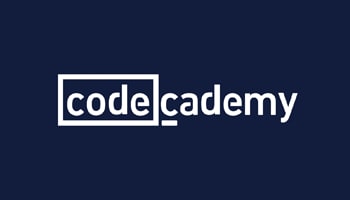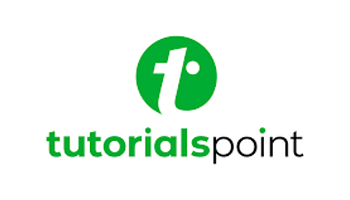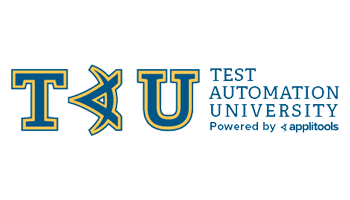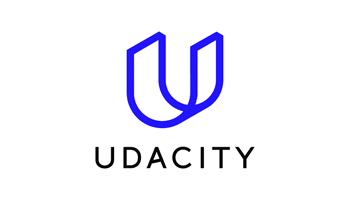Useful resources to learn Java for free in 2023.
When it comes to programming, there is one language that has remained prominent, reliable and sturdy over the decades and that’s Java.
Java today is a bit like its original name "Oak" - while the name may have changed, the language remains as solid and steadfast as an old oak tree 🌳, providing a strong foundation for developers to branch out and create amazing software.
What is Java?
Java is a high-performance programming language and adaptable platform, initially developed by Sun Microsystems in 1995 to be portable across all devices. Its purpose was to enable developers to write code once and run it anywhere (WORA).
The unique aspect of Java's design lies in its object-oriented approach, which strives for minimal implementation dependencies so that pieces of code can function independently as reusable components.
Why is Java considered one of the most widely used programming languages?
There are several reasons why Java is widely used today. For starters, it has a vast ecosystem and an enormous community of developers.
Furthermore, from enterprise-level systems to portable devices, Java pervades various settings around the world.
Its compatibility with popular platforms such as Windows, macOS, Linux, and others has also made it a preferred programming language amongst developers worldwide.
The role of Java in the development of web and mobile applications
Java has played a crucial part in shaping the digital world, especially when it comes to web and mobile app development.
The presence of Java-based frameworks such as Spring, Java EE and JavaServer Faces (JSF) has given developers much-needed tools for creating applications that can scale well, and provide maximum security measures while being packed with essential features.
In terms of mobile use, Java's significant contribution to Android makes it the go-to language for developing apps on millions of smartphones and tablets around the globe.
The Benefits of Learning Java
Learning Java can unlock numerous career opportunities for newbie programmers.
From the finance and e-commerce industries to healthcare and gaming, there is high demand for skilled Java developers.
Yet, beyond just a promising career path, there are multiple benefits to pursuing this language, such as:
- Enhances problem-solving and critical thinking skills through its object-oriented programming (OOP) principles and structured approach.
- Promotes attention to detail with its strict syntax and error handling.
- Enables the development of robust and scalable software with a focus on performance, reliability, and security.
- Offers features like garbage collection, strong memory management, and built-in exception handling for stability and efficiency.
- Provides a vast ecosystem of libraries and frameworks that simplify complex tasks and accelerate development cycles.
So if you’re sold on Java, there are many free resources available to get you started.
Here are 6 great resources to learn Java:
#1 - Codecademy
Codecademy's Learn Java course is designed to teach you the fundamentals of coding in Java. By completing this course, you'll gain essential skills to build core programming concepts, understand object-oriented principles, and create Java projects.
With the knowledge gained in the course, you'll be equipped to develop robust systems, software, and mobile applications, including Android apps. Through hands-on practice and real-world projects, you'll strengthen your Java programming skills.
#2 - TutorialsPoint
TutorialsPoint's Learn Java Programming course is a comprehensive tutorial designed for beginners to gain a solid understanding of the Java programming language, from basics to advanced concepts.
By completing this course, you will achieve a moderate level of expertise in Java, setting a foundation for further skill development. While it is tailored for beginners, prior exposure to programming environments and familiarity with fundamental concepts such as variables, commands, and syntax is recommended.
This course equips you with the knowledge needed to embark on your Java programming journey and take your skills to the next level.
#3 - Sololearn
Sololearn's Introduction to Java course is designed for beginners looking to embark on their Java coding journey. In this course, you'll learn foundational concepts, including variables, user inputs, strings, conditional statements, logical operators, loops, and arrays.
No prior coding knowledge is required, and with just 5 minutes a day and access to a mobile phone or desktop computer, you'll be able to grasp the key concepts of Java and start writing functional code from your very first lesson.
If you're eager to level up your skills, you can explore their Intermediate Java course.
#4 - freeCodeCamp on Youtube
freeCodeCamp's Intro to Java Programming course on YouTube offers a comprehensive tutorial for absolute beginners who want to learn Java programming.
This complete course assumes no prior programming experience, making it accessible to anyone interested in Java. Through this freeCodeCamp tutorial, you will gain knowledge about essential topics such as arrays, objects, classes, loops, and debugging.
There is also a series of other Java-related tutorials from freeCodeCamp if you want to expand your knowledge further.
#5 - Test Automation University
Test Automation University's Java Programming course, led by instructor Angie Jones, offers a comprehensive and in-depth learning experience in the Java programming language.
With over 18 years of experience as a certified Java Programmer, Angie shares her expertise gained from working at renowned companies like IBM and Twitter, as well as teaching Java at the college level.
This course covers the equivalent of a full semester of Java programming at a university and is tailored for complete beginners. While the focus is on test automation engineering, the course provides a well-rounded understanding of Java, enabling you to apply your skills to various programming roles.
#6 - Udacity
Udacity's Java Programming Basics course offers a solid introduction to Java syntax, providing a crucial foundation for aspiring Java developers.
By taking this course, you'll gain an understanding of how computers make decisions and how Java manages information through variables and data types. Through the course, you'll learn to create conditional statements, functions, and loops to process information and solve problems effectively. Additionally, you'll work with IntelliJ, a popular Java IDE used by professional developers, to build, compile, and debug your code.
This course serves as the first step in Udacity's Java Programming series, and upon completion, you'll be ready to progress to the next course in the series, Object Oriented Programming in Java (also free).
In conclusion, learning Java is a wise choice to take on for anyone learning to code. Its popularity, versatility, and wide range of applications make it a sought-after skill in various industries.
Java not only offers a wide range of career prospects but also enhances problem-solving and critical thinking abilities through its object-oriented approach.
The language's robustness and scalability make it ideal for developing reliable and efficient software.
As you can see there is an abundance of free websites and courses available, so learning Java has become more accessible than ever. Thus, exploring these resources will be a great place to start embarking on your Java journey.
And be sure to have that cup of coffee handy! ☕️
From your fellow ever-growing dev,
Cherlock Code
💙 If you liked this article...
I publish a weekly newsletter to a community of ever-growing developers, seeking to improve programming skills and stay on a journey of continuous self-improvement. Focusing on tips for powering up your programming productivity 🚀.
Get more articles like this straight to your inbox.
And stay in touch on 🐦 @evergrowingdev









Top comments (0)